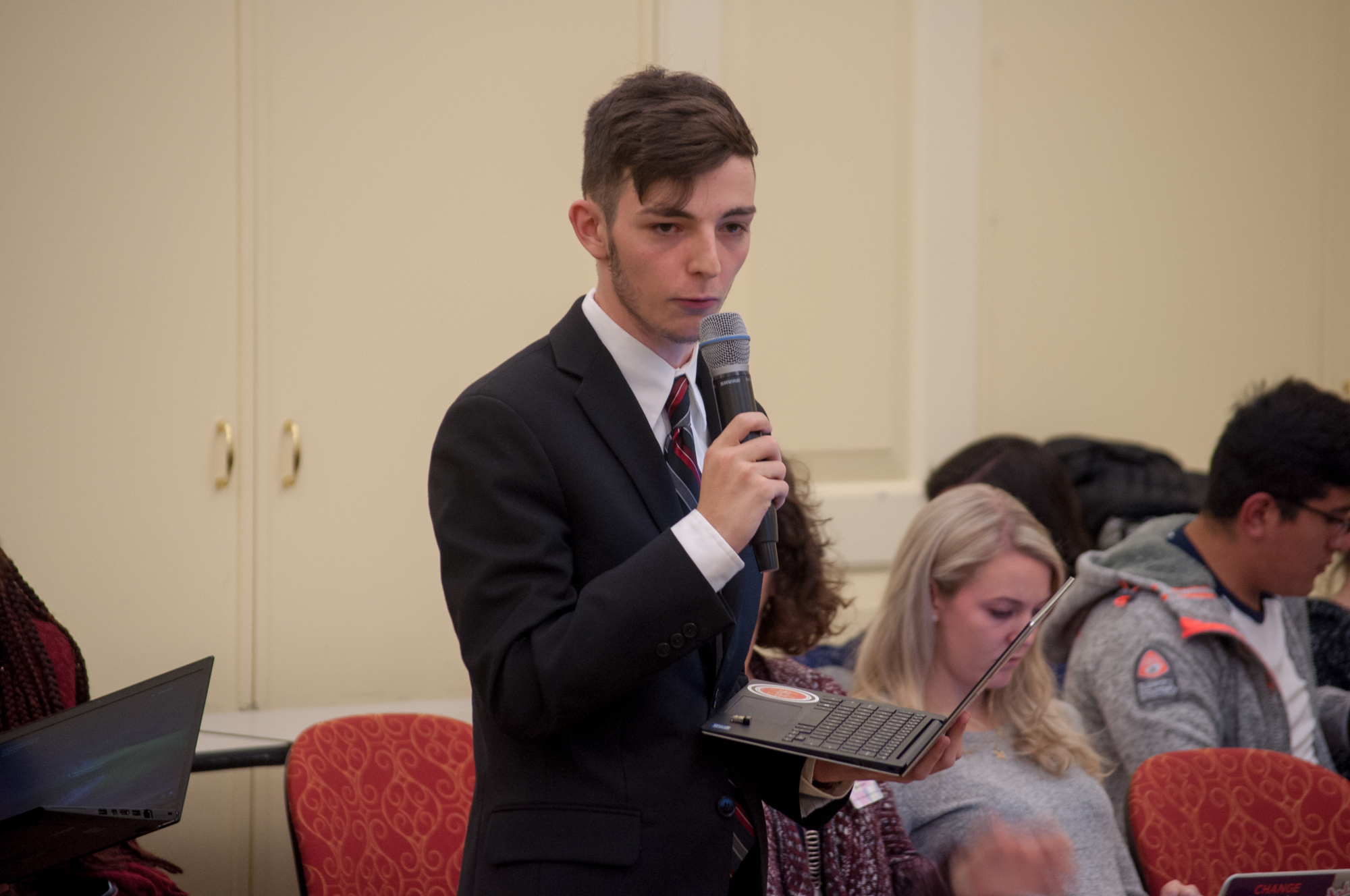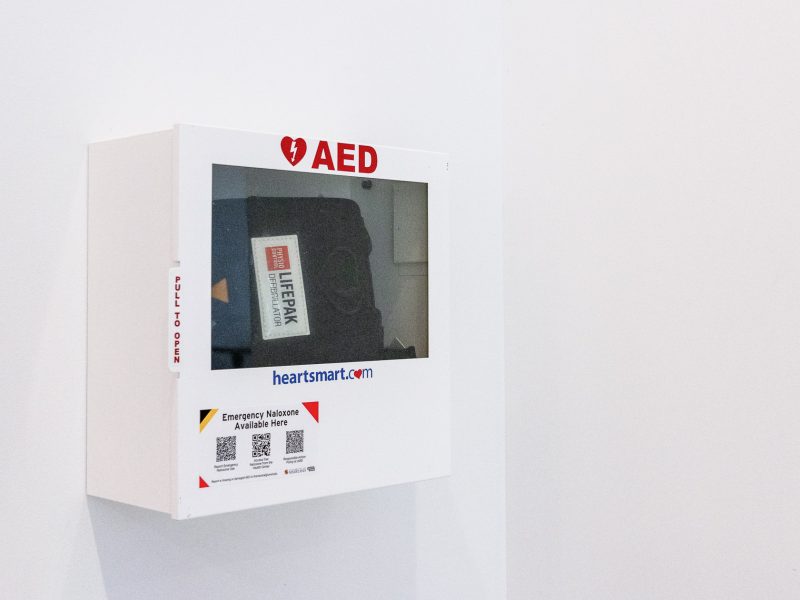The University of Maryland SGA voted Wednesday to change some of its election rules to increase competitiveness and voter turnout.
The Student Government Association approved the Constitution and Bylaws Committee’s vote that opposed only allowed legislative candidates to run with a party, while executive candidates would have to run as independents.
Task force members Christian Knapp, Nate Zumbach and Ajay Mahesh called the measure one of the most significant potential election changes.
“An issue students say is the executive group runs the show and legislators fall underneath,” Zumbach said. “It doesn’t give [the legislature] the same sort of incentives to have to go out and talk to students and take your campaign as something of your own.”
In the past, the SGA has fostered an “early mover advantage” system, where members unofficially declare they will run for an executive position. These members then ask existing legislators to run on their ticket, said Knapp, the task force’s chair.
[Read more: SGA discusses election reform and student voter registration at first fall meeting]
“If there’s someone who is picking all of these members of the legislature and get them to run with them, they have a huge advantage in the election,” Knapp said. “It makes it nearly impossible for people outside of the SGA to run and win.”
There are other ways the SGA can encourage more students to run, such as providing a better understanding of the elections process and increasing the elections board’s responsibilities to do more outreach year-round, SGA President AJ Pruitt said.
The task force’s recommendation would change the entire elections process, Pruitt said.
“The issue hasn’t been settled and it’s still something we’re going to focus on,” he said. “It may just have to be something we have to ease into more.”
The SGA voted to keep a party’s maximum fundraising and spending cap at $2,000, while establishing a uniform cap of $450 for all independent candidates in an effort to “level the playing field,” said Jonathan Allen, speaker of the legislature.
Previously, independent executive candidates were able to raise $600, while legislative candidates were capped at $150.
“Social economic status should not be an impact on whether you should be able to get as many marketing supplies or not,” said Mahesh, a senior community health major. “We don’t want their financial status to be an issue.”
The SGA voted to extend the campaigning period by one day and the voting period by about half a day. The task force wanted to increase the campaign period marginally so that students don’t lose interest, Zumbach said.
“We want to increase it just a little bit to give students more time to be able to adapt to their campaign strategy,” said Zumbach, a senior economics and finance major. “We’re all students, so the campaign period can’t be too long because students still have classes, work and jobs.”
The SGA is also working to extend voting to 24 hours, as students were previously able to vote from only 9 a.m. to 8 p.m. on Testudo, Pruitt said.
The SGA supported a proposal to enhance candidate information sessions by including recommendations for conducting a campaign, such as making a Facebook group and handing out flyers. Information sessions include an overview of elected officials’ responsibilities and accountability and ethics standards, according to elections rules.
[Read more: After low turnout in recent SGA elections, UMD students express concerns at town hall]
“We want to give them tips and tricks for students who have never had experience in the SGA or any experience with SGA elections,” Zumbach said.
Of 188 student respondents from an SGA legislative poll, 140 said they were either “not at all confident” or “not very confident” in knowing how to run for SGA elections.
In addition to legislative polling, the task force interviewed 25 people — including SGA and non-SGA members — who they believed would provide well-informed opinions and ideas for improving the election process.
Pruitt established the task force after the organization saw just 8 percent of the undergraduate student body turn out to vote in its spring 2017 elections. The One Party was the only group in the race after the competing Unity Party dropped out following a report revealing the party violated campaign finance rules by failing to disclose support from a conservative nonprofit.
The task force’s recommendations aren’t guaranteed to achieve the SGA’s goals, but it is worth it to try to enhance the current election system, Knapp said.
“My philosophy is it’s better tested with one to two elections and then go back to the old system rather than just stick with the old system because we know that hasn’t worked,” he said.



